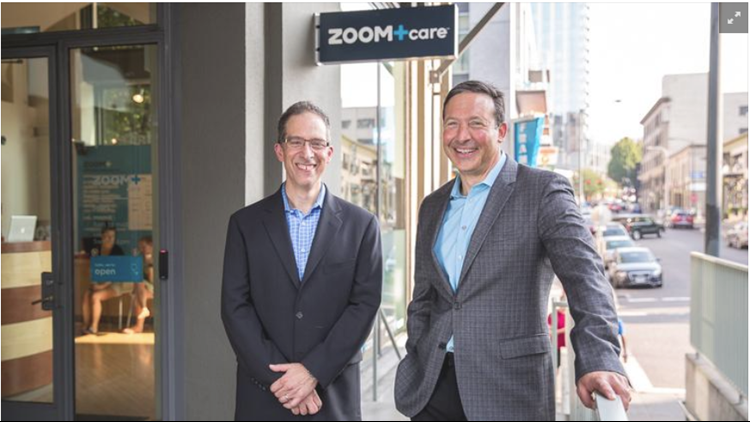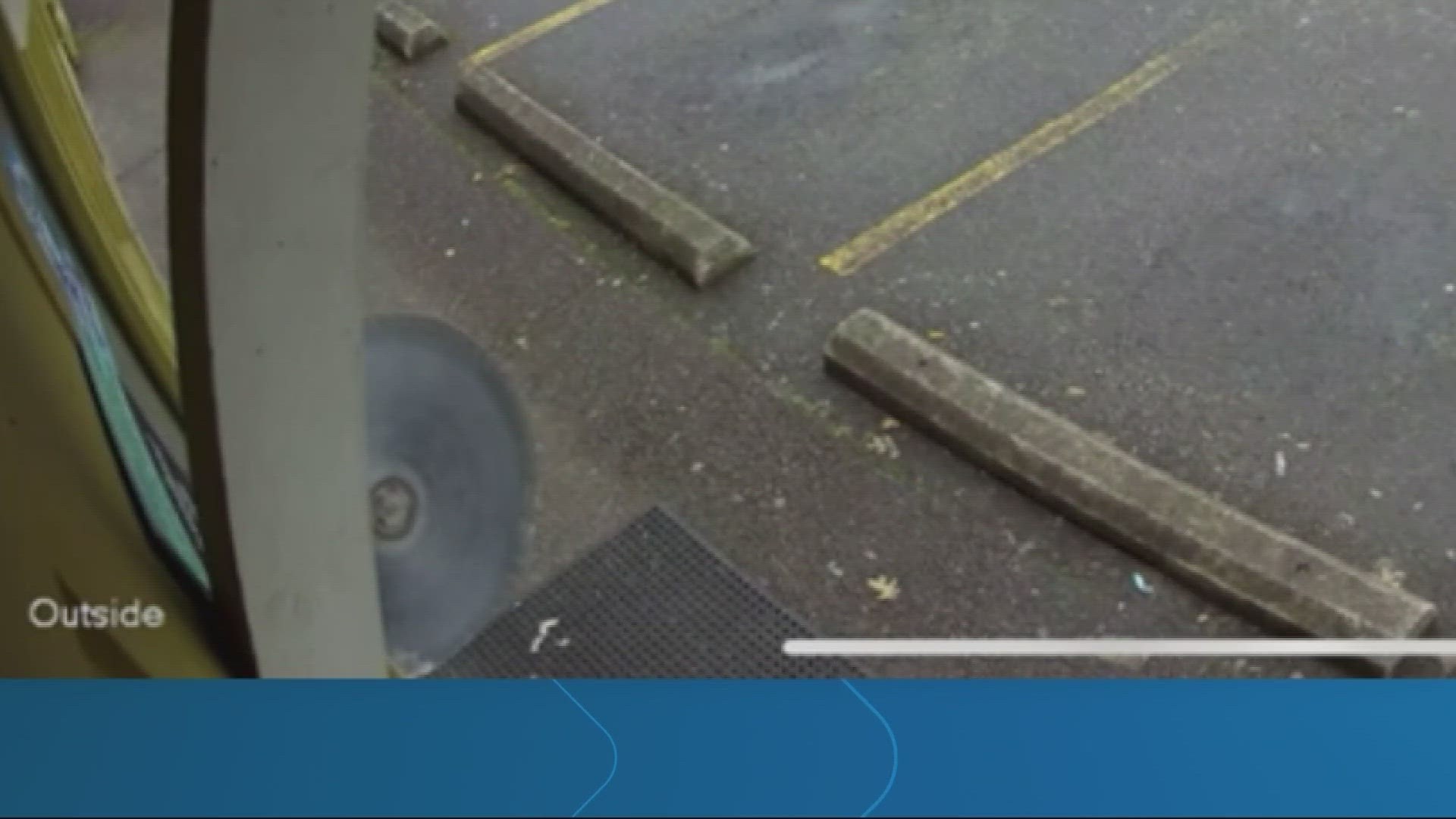PeaceHealth, the $2 billion Catholic health care system based in Vancouver, Washington, is acquiring Zoom+Care, the Portland-based chain of neighborhood “on demand” clinics.
“We share a passion to deliver on our on-demand care through a digital platform that meets the need of our consumers and provides access and affordability to the marketplace,” said Mike Dwyer, PeaceHealth’s Executive Vice President, Strategy and Community Health.
Dr. Dave Sanders, who co-founded Zoom 12 years ago and serves as CEO, said he spoke with “many potential partners,” including local hospital systems, this past year as it looked to continue innovating and expanding.
“PeaceHealth stood alone in their shared vision with Zoom,” Sanders said. “All the other hospital systems viewed Zoom as feeders to their high-profit hospital beds. Mike saw ZoomCare as the future, not as a feeder. They’re investing in a new way to develop customer relationships.”
The parties have signed a definitive agreement, but terms of the deal were not disclosed. As a nonprofit, PeaceHealth will report the investment in its financial statements filed with the IRS.
Sanders also declined to say if he was staying on in his role as CEO, but under the terms of the agreement, Zoom will operate under its own brand name with separate leadership and board of directors.
Sanders said that PeaceHealth bought out Zoom’s largest outside investor, Endeavour Capital. The Portland-based private equity firm has invested at least $76.2 million in Zoom since 2014, based on information that emerged last year in a dispute with Zoom.
PeaceHealth is by far the larger of the two organizations, with a multi-specialty medical group practice with more than 1,200 physicians and providers and 10 medical centers in Northwest. It was founded in 1890 by the Sisters of St. Joseph of Peace.
Sanders co-founded Zoom with his longtime friend Dr. Albert DiPiero, starting with one urgent care clinic in Bridgeport Village, south of Portland. It has since grown to 37 neighborhood clinics in Portland, Vancouver, Seattle and Salem and expanded to primary and specialty care, mental health, telemedicine and a “Super” clinic that treats non-life threatening emergencies.
But Zoom has also made its share of missteps.
A foray into health insurance ended badly last year, with the plan going under and state regulators placing it in receivership and suing Zoom’s management arm to recoup $3 million.
Endeavour filed a breach-of-contract lawsuit against Zoom’s management arm and requested that a judge place the company in receivership. Endeavour had invested $61 million in Zoom at that point, including $8.8 million in loans to keep it afloat last year.
Endeavour Managing Director Stephen Babson argued that Zoom was on the brink of insolvency and it accused Sanders and DiPiero of demanding “guaranteed generous personal benefits.”
They, in turn, accused Babson of trying to wrest control of the company and to “maximize the profits of their venture fund” and overstating Zoom’s financial crisis.
The parties settled their dispute after 10 rancorous days, with Endeavour investing $24 million in Zoom, including the previous $8.8 million that was converted into longer-term notes.
Zoom’s fortunes soon began looking up. It achieved profitability in the fourth quarter of last year, opened two new clinics this year and announced a collaboration with the third-largest U.S. carrier, Aetna, to offer plans to large Portland-area employers.
“We felt very fortunate for Endeavour to come into the company and invest in a bold vision for the company and I’ll always be grateful,” Sanders said. “At this time, Endeavour Capital is entirely out of our company and our future lies with PeaceHealth.”
"It’s a very good match," he said. "I think both companies can see how this strategically is in their interest. It gives Zoom scale and PeaceHealth access to a compnay that has exceled in on-demand health care. We were supportive of the transaction from the beginning. I think this was a natural evolution for Zoom as it got to a certain size, that it would require a strategic partner to execute and this is the one that allows that to happen."
The deal with PeaceHealth is expected to close on Dec. 31.
Dwyer said he approached Sanders when he was “looking for partners to accelerate our journey into this marketplace.” While PeaceHealth does operate its own urgent care clinics, he said they don’t overlap with Zoom’s market, nor does the hospital system have an “on-demand technology platform.”
“That’s why we see this as complementary to those existing channels we currently have,” Dwyer said. “It offers more choice in the marketplace and increases accessibility and affordability to people with a wide range of socioeconomic backgrounds.”
The Zoom model begins with a “Sarah,” or patient, connecting with the clinics by their smartphone, then seeking care in person at a neighborhood clinic, if needed. Sanders often touts Zoom’s transparent pricing and tiered care model as a more efficient and low-cost alternative for consumers.
“Health care costs today are extraordinary,” Sanders said. “People pay lip service to it and Zoom believes we have a sincere approach to make it affordable. From shifting care from centralized to decentralized, that’s the basis for using health care rationally. It’s the basis for our shared partnership and passion.”



